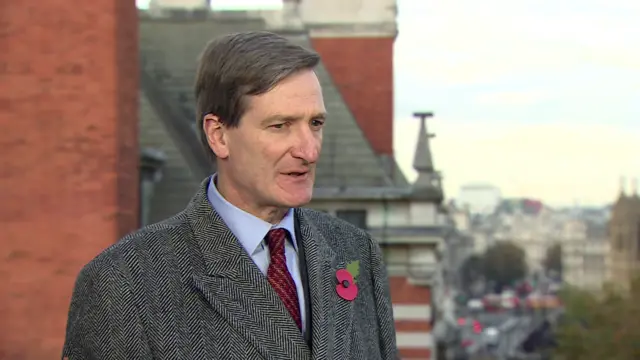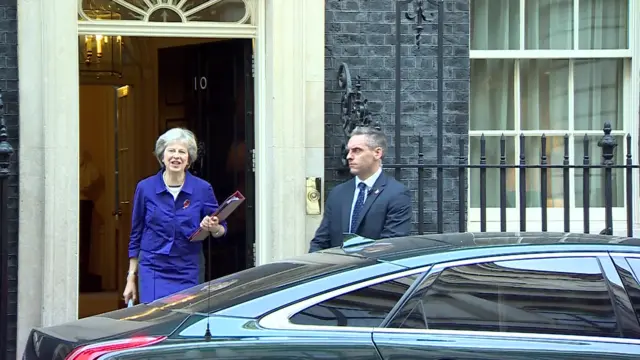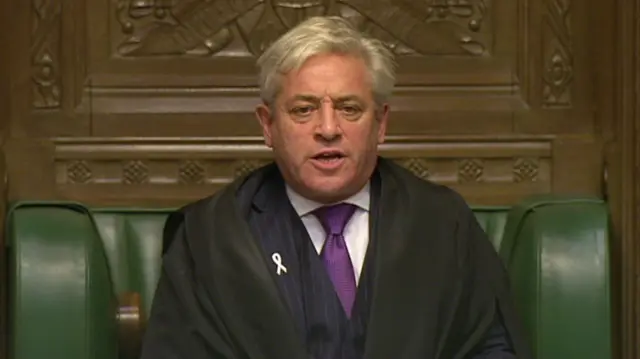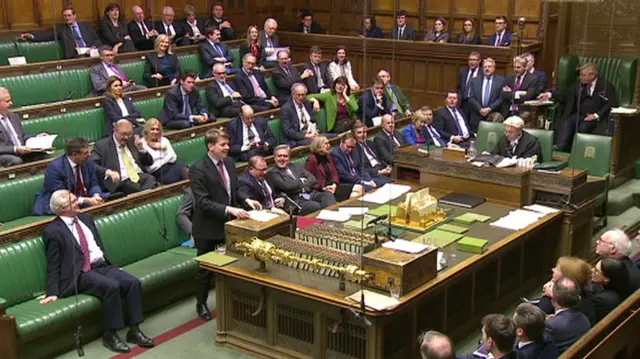Scots 'more effective' with Whitehallpublished at 09:54 GMT 8 December 2016
The Scottish Government enjoys a "more effective" relationship with UK ministers than its Welsh counterpart, MPs say.
Read MoreSupreme Court case ends with reminder it's not about stopping Brexit
Government appealed against ruling it needs MPs' approval to trigger Brexit
Judgement is expected in January
Watch highlights of each day via clips above, or scroll down to see how events unfolded
Jackie Storer and Alex Hunt
The Scottish Government enjoys a "more effective" relationship with UK ministers than its Welsh counterpart, MPs say.
Read More Financial Times
Financial Times
According to the Financial Times, external, Theresa May has played down suggestions that German Chancellor Angela Merkel holds the key to the kind of Brexit Britain can expect to get.
Speaking to the Financial Times, Mrs May insisted it was important to deal with all 27 of the other EU states and not simply focus on Germany.
She acknowledged that the two-year negotiation - which MPs voted on Wednesday should be triggered by the end of March - will not be "easy" and acknowledged that the remaining EU countries do not want to see a repeat of the June 23 Leave vote in other member states.
Discussing the role of Mrs Merkel - who faces a re-election battle in the autumn of 2017 - in the Brexit process, Mrs May said:
Quote MessageI think it's also important to build a relationship with others sitting around the European table. There are 27 member states which will be negotiating."
She suggested the atmosphere in talks will be tense: "They don't want to see others looking to break away and to vote to leave in the way the UK has done. Things will be said. I think it's important for us to build up the relationship with the people we're negotiating with."
And she added: "What I've been saying to people is I want to see as smooth and orderly a process as possible. Of course, it's going to be complex because there's a lot to deal with. You're not a member of something for 40-odd years and then it's easy."
 Victoria Derbyshire
Victoria Derbyshire
BBC assistant political editor Norman Smith says if the Supreme Court decides there still needs to be legislation before Article 50 can be triggered, that will trump Wednesday night's Commons vote.
MPs voted to back the government's plan to start formal talks on Brexit by the end of March next year.
The amended Labour motion also called for Parliament to "properly scrutinise" the government in its proposals for leaving the EU.
But Norman says that if the Supreme Court judges say legislation is needed to trigger Article 50 that could delay "and even thwart" Theresa May's plans.
Iain Duncan Smith says Parliamentary approval for the government to invoke Article 50 is like a blank cheque.
Conservative MP and Leave campaigner tweets...
Allow X content?
This article contains content provided by X. We ask for your permission before anything is loaded, as they may be using cookies and other technologies. You may want to read X’s cookie policy, external and privacy policy, external before accepting. To view this content choose ‘accept and continue’.
Allow X content?
This article contains content provided by X. We ask for your permission before anything is loaded, as they may be using cookies and other technologies. You may want to read X’s cookie policy, external and privacy policy, external before accepting. To view this content choose ‘accept and continue’.
 The Guardian
The Guardian

Theresa May has a duty to disassociate herself from the “vitriolic abuse” heaped onto the judiciary by newspapers including the Daily Mail, a senior Conservative MP, who said the prime minister had fallen short over the controversy, tells The Guardian, external.
Dominic Grieve, the former attorney general, said it was not good enough for Mrs May and other government ministers to defend the freedom of the press after three high court judges were labelled “enemies of the people”.
The Daily Mail accused the Lord Chief Justice and two senior colleagues of declaring “war on democracy” after they ruled against the government’s right to trigger article 50 without a vote in parliament, The Guardian says.
It produced further unapologetic revelations about the backgrounds of the 11 top judges currently overseeing May’s appeal of the case in the supreme court.
 Today Programme
Today Programme
BBC Radio 4
Former Conservative attorney general Dominic Grieve, who backed the Remain campaign, argues that neither Wednesday night's Commons vote on Brexit or the referendum can change the law of the land.
He tells BBC Radio 4's Today programme that both outcomes "have great political force", but new laws are needed to change old ones.
He defends the right of MPs to question the government's strategy before the triggering of Article 50 - the legal process that starts Brexit.
He says MPs have "an absolute entitlement, a duty" to protect the rights of their citizens.
Labour former minister Ben Bradshaw, a Remain campaigner, voted against Wednesday's Labour motion calling for Parliament to "properly scrutinise" the government in its proposals for leaving the EU.
He said he didn't back the motion because he believed it was "rushed" and "ill thought through" and he didn't have confidence the plan would amount to much.
He says he believes MPs may vote differently once the government outlines its plans for Brexit.
 Today Programme
Today Programme
BBC Radio 4
BBC political editor Laura Kuenssberg says the Commons haven't given Theresa May a blank cheque by backing the government's Brexit timetable.
She tells BBC Radio 4's Today programme that not only was the vote on a Labour motion, so it is not binding, but the Supreme Court may well say there will need to be legislation before Article 50 is triggered.
However, she says the vote is evidence that not many MPs will try to block Brexit.

According to the FT, the word “queen” attaches itself easily to Theresa May. Remote, admired, feared, the woman who took over a country gripped by the fallout from Brexit smiles politely in her No 10 study when reminded that she once named Elizabeth I as the historical figure with whom she most identified.
“She stood up for Britain,” the country’s second female prime minister, charged with navigating the perilous path out of the EU, told the FT's George Parker.
Theresa May likes to be in control: she is wondering where the Elizabeth analogy is going.
Quote MessageI’m not sure it was consciously about her being a female leader. I think it was just about somebody who had a very clear vision about what she wanted to do.”
In her almost five months as prime minister, Mrs May has been accused of acting like a Tudor monarch, trying to use royal prerogative powers to start Brexit without consulting parliament, Parker says.
And there is indeed something imperious about her, as she sits sipping tea, contemplating a nation at “a turning point” in its history, Parker comments.
 Norman Smith
Norman Smith
Assistant political editor
Downing Street has played down claims that Theresa May has been given a "blank cheque" on Brexit after Labour backed her plans for triggering Article 50.
Only 23 Labour and one Conservative MP - Ken Clarke - voted against Mrs May's move to begin leaving the EU by the end of March. They have also stressed that the vote does not supersede any decision by the supreme court.
Today is the final day of the hearing to decide whether the govt requires legislation to trigger Article 50.
Last night's Commons victory has been greeted with near jubilation by some Brexit-supporting MPs who believe it signals that Labour has now committed not only to accept the result of the referendum but to accept Mrs May's timetable for pulling out of the EU.
It has also prompted deep anguish in Labour ranks - with many Labour MPs profoundly unhappy that the party has found itsellf supporting Mrs May over Article 50.
"We have blundered into a Tory trap" said one.
This morning however No 10 cautioned its supporters that the vote was not binding, nor did it over-ride any decision by the Supreme Court over whether legislation is needed to trigger Article 50.
And speaking on Today earlier the leading Leave campaigner and Conservative MP Iain Duincan Smith - issued this warning to the court:
Quote MessageI have no idea what the Supreme Court want to do but if they want a massive constitutional clash, then straying into the territory of telling parliament and government how they want to go about their business is exactly where I think they don't want to be."
Despite last night's vote - Labour and other oppostion parties have already warned - if the court backs the need for legisaltion they will seek to amend it, which could yet thwart Mrs May's plans and timetable.
Banks are in advanced stages of planning to shift some operations from London to Paris, says France's leading financial regulator.
Read MoreMPs have voted to "respect" the government's timetable for triggering talks on leaving the EU.
Read MoreLabour chair of the Commons Brexit select committee on the BBC News Channel
Allow X content?
This article contains content provided by X. We ask for your permission before anything is loaded, as they may be using cookies and other technologies. You may want to read X’s cookie policy, external and privacy policy, external before accepting. To view this content choose ‘accept and continue’.
Allow X content?
This article contains content provided by X. We ask for your permission before anything is loaded, as they may be using cookies and other technologies. You may want to read X’s cookie policy, external and privacy policy, external before accepting. To view this content choose ‘accept and continue’.
MPs back Theresa May's plans to start the process of leaving the European Union by the end of March next year.
Keith Macdougall reports for Today in Parliament as MPs also support a Labour motion calling for Parliament to "properly scrutinise" the government's proposals for leaving the EU.
There is more news from the Commons and the Lords in Today in Parliament, Radio 4, at 2330.
Parliamentary reporter tweets
Allow X content?
This article contains content provided by X. We ask for your permission before anything is loaded, as they may be using cookies and other technologies. You may want to read X’s cookie policy, external and privacy policy, external before accepting. To view this content choose ‘accept and continue’.
Brexit debate
 House of Commons
House of Commons
Parliament
MPs have approved the amended Labour motion, which calls on the government to publish its plan for leaving the EU before Article 50 is invoked on 31 March 2017, by 448 votes to 75, a majority of 373.
That brings to an end the debate.
Brexit debate
 House of Commons
House of Commons
Parliament

The debate has come to an end and MPs divide to vote on the government's amendment to the Labour motion.
The amendment accepts the wording of the Labour motion that calls for the government to publish its plan for leaving the EU before triggering Article 50, but adds at the end that this must be:
Quote Messageconsistent with the principles agreed without division by this House on 12 October; recognises that this House should respect the wishes of the United Kingdom as expressed in the referendum on 23 June; and further calls on the Government to invoke Article 50 by 31 March 2017"
Brexit debate
 House of Commons
House of Commons
Parliament

Robin Walker, Minister for Exiting the European Union, winds up the debate for the government. He says the government is "getting on with the job" of delivering the mandate of the British people.
The minister warns that the government is taking its time to get the detail right because "getting our approach right the first time" is in the long term national interest.
He warns against rushing such a "complex challenge with a wide range of potential outcomes".
Mr Walker says parliamentary scrutiny "is invaluable", but says that cannot be at the expense of binding the government's hands in negotiations.